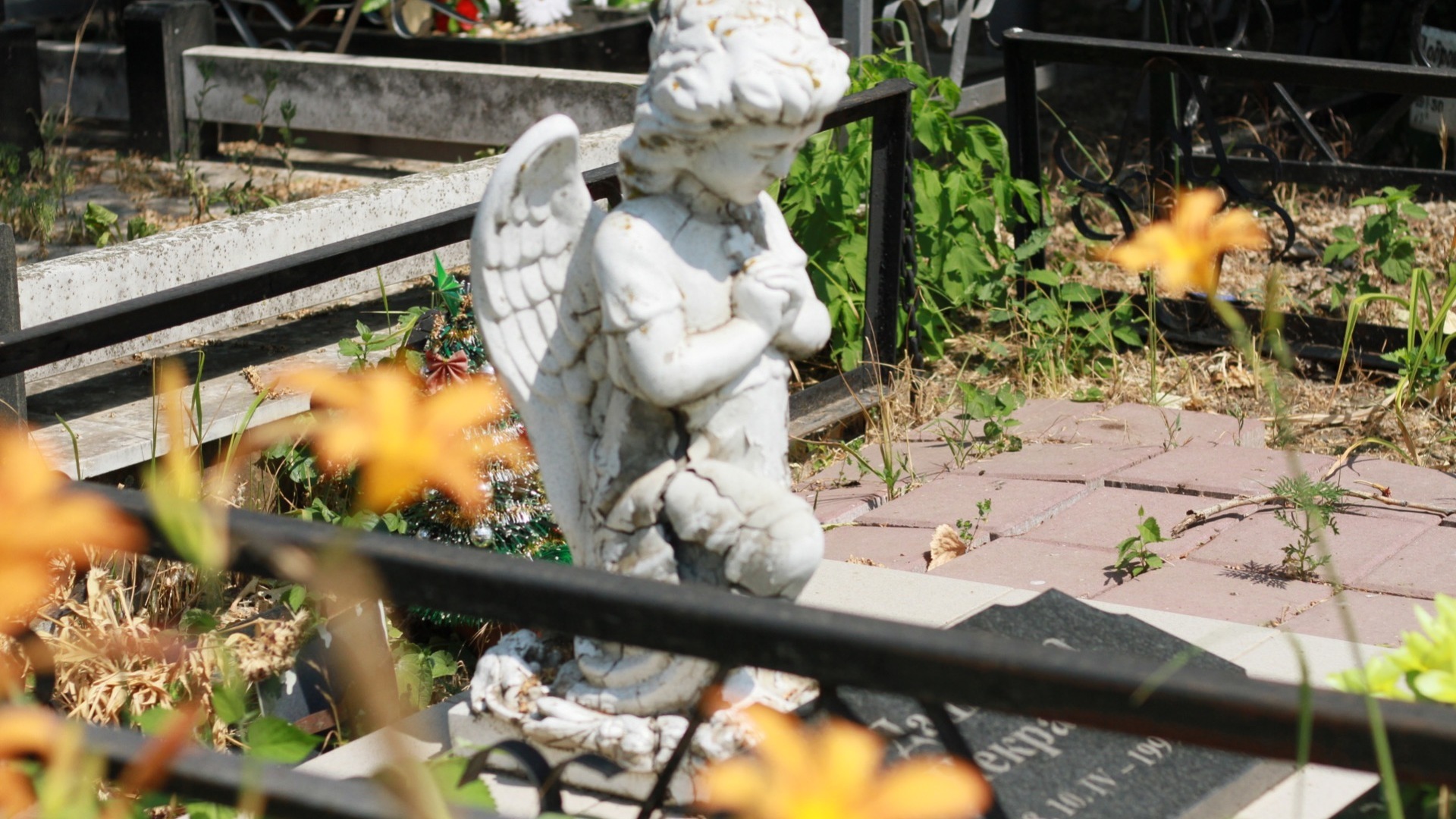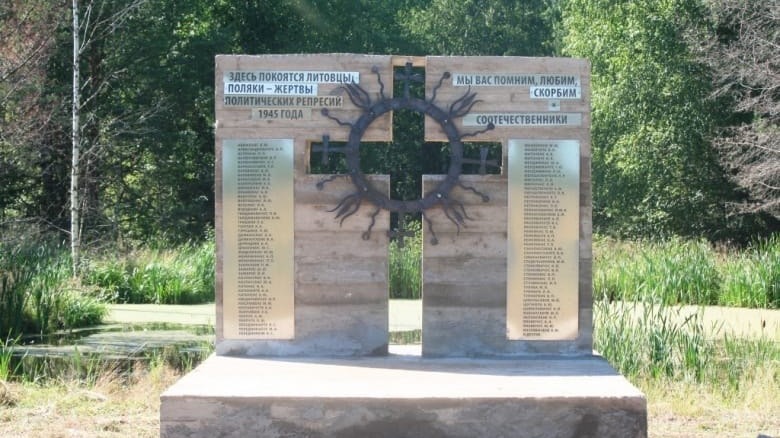Posted 20 июня 2023, 13:12
Published 20 июня 2023, 13:12
Modified 21 июня 2023, 08:15
Updated 21 июня 2023, 08:15

War with the Dead: Polish monuments and graves have been massively vandalized in Russia
Ekaterina Maximova
In the Sverdlovsk region, vandals destroyed the burial sites of repressed Poles. The president of the Polish society «Polaros» Marina Lukas told Novye Izvestia that we are talking about two monuments in the villages of Kostousovo and Ozernoye, installed at the mass graves of Poles. And the desecration of memorable places is clearly not a spontaneous, but a well—thought-out action.
«In Kostousovo, the nameplates were screwed on, the bolts were unscrewed and the nameplates were removed. That is, they were walking with the tool, not just some passerby poked around. In Ozernoye, the plaques were cemented. And they were ripped out. I had to crush the cement with something, you can't do it with your bare hands, » Marina Lucas clarified and briefly told the story of the burials on The Urals.
«Both places where monuments are installed were once cemeteries. Poles were buried there, who in the winter of the 40th year were deported to The Urals from the Volyn region (after the annexation of the Volyn province to the USSR). Whole trains with Polish families arrived in Kostousovo at that time. And people lived in these villages, worked on an equal basis with everyone. Poles, mostly, were sent to logging. Not many survived until 1944, when the Soviet government allowed the settlers to return to their homeland. Hunger, cold. The elderly, children, and women died most often, » Marina Lukas continues.
Children who were able to return to Poland, eventually organized the union of former kostousov and ozertsovtsy. And when the Iron Curtain collapsed, the descendants of the settlers began to come to the Urals. In 1997, a monument was erected in Ozernoye. In 2007, a memorial place was built in Kostousovo, where until that time there was just a wooden cross.
«The goal was to put memorials to those people who died on foreign soil. We had 54 names of the deceased on the monument in Ozernoye, but that's not all. Only those who could remember. Poles came, made friends with the villagers, communicated with the elderly — witnesses of those events. And in People went to Poland to visit them. The connection was close. And I am sure that the locals could not do this — desecrate the monuments. Everyone knows the story. The head of the district informed me about the incident, » says Marina Lucas.
Candidate of Legal Sciences, associate Professor, head of the ANO «Center for European Information» Nikolay Toporin called what is happening «a purely negative phenomenon.»
«It does not paint those people who staged these actions. No matter what motives they are guided by. Demolishing tombstones is unacceptable. Whoever was buried there — Poles, Jews, Germans, Russians… To fight with the dead is not to respect yourself. And to frame the country, to shame. Absolutely unacceptable. But, unfortunately, there are vandals in our country, although we have always treated burials with respect. And the wave of such incidents causes the deepest regret and shame, » commented Toporin.


Marina Lucas adds: similar actions have swept across the country. Vandals operated in Irkutsk, Yakutsk, Perm Krai, Petrozavodsk. And everywhere their goal was precisely the burial places of Poles.
For example, in the Perm Region, in the former special settlement of Galyasher, a monument erected in memory of the families of Polish and Lithuanian exiles disappeared from the face of the earth. Its dismantling cannot be attributed to «pampering» by passing hooligans. In Yakutsk, plaques were also torn off from the memorial to the exiled Poles. Neither the regional authorities nor the municipal service could explain the reasons for the demolition of the plaques to local public figures.
«It's hard for me to say who is behind this, but, of course, it catches my eye that somehow all this is being carried out in a fairly organized manner. You see, these monuments are as defenseless as these people who died here were. These are mostly children, women and the elderly. This is a cemetery. And come, break, tear, trample … Well, how's that? And this is also our story, » says Marina Lucas.
Political scientist, expert of the International Institute of Humanitarian and Political Studies Vladimir Bruter notes that «every event has its own reverse.»
«When the Poles started their next „crusade“ against Russia, they had to take care of, among other things, such things. Naturally, it is not good to smash someone's graves. And ugly. But the question is that there is a lot of negativity towards Poles in Russian society now. And if the Poles want to get rid of this negative, they should take steps to meet first, because they destroyed these relations first. Now relations with Russia and the West will be interrupted for a long time. For a long, very long time. They will balance between „very bad“ and „extremely disturbing.“ With the filing of the collective West, in which Poland played the role of a battering ram, many taboos have been lifted. And now, as they say, they don't cry for their hair anymore.» Bruter says.
He adds that it is naturally not good to destroy graves.
«But if we are talking about such things, then the state should close these burials for visits. As far as it is, of course, possible. This is the only option that, on the one hand, will help to avoid vandalism, and, on the other hand, hype. But no friendly steps towards Poland in There will be no Russia. Even with the destruction of monuments, it matters who started it first. If the Poles do not know who liberated Poland, who doubled it to the pre—war one, then I sympathize with them, » the expert concluded.
Yes, more Soviet and Russian monuments were demolished in Poland than in any other European country. And by May 9, there, «tying» to the memorable date, one by one, the monuments to Soviet soldiers were dismantled.
«But let's not be like those who demolish Russian monuments abroad. If we are crossed out of history somewhere, let's not do it in response, » Marina Lukas urges.
Vladimir Bruter believes that there is no all-Russian organized group behind this. This is more of a spontaneous process. And Nikolai Toporin, as a lawyer, reminds that mocking burial sites, especially if they are under state protection, is also a criminal offense.
«I hope that law enforcement agencies will figure out who is behind the vandal actions. And the guilty will receive the appropriate punishment. Although it is certainly not easy to do this. To catch by the hand somewhere in the backwoods… But if this is really systemic in nature, with preparation, then this is already, consider it, a criminal group, and not just vandals hooligans. For this, a rather serious criminal punishment is threatened, it can pull for 10 years, » Toporin recalled.